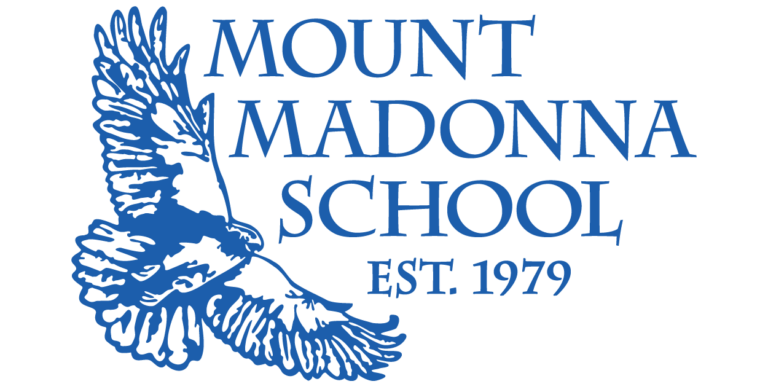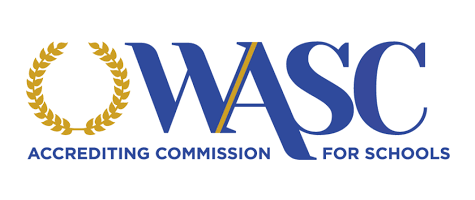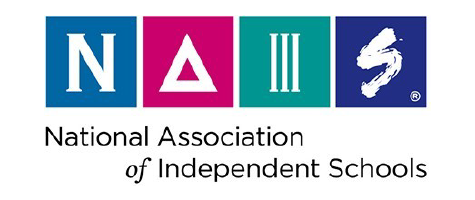MMS opened in 1979 as a private school licensed by the State of California under the auspices of Santa Cruz County Office of Education. This arrangement assured that if the School did not succeed our students would be allowed to get credit for their year of study.
The Center allowed the School to wall up the carport of the summer-home-turned-Program-and-Community-Building (i.e. the only available under utilized space on the property), for our one room schoolhouse. We began with a combined first, second and third grade class: one teacher and eight students.
Iris Kalpana Kachuck was the MMS founding principal. Kalpana, while also teaching at a local high school, was able to unify the various views on what the School might be into a cohesive understanding of what was practically possible in our first experimental year. Uma Heinrich, Hamsa Heinrich’s sister-in-law, was our first classroom teacher, and was able to creatively educate a wide variety of age groups and abilities. Our first School Board included among others, our neighbor, Dr. Henry Gunn, a distinguished educator and former Superintendent of Palo Alto Unified School District. Our first students included resident MMC children and non-resident Fellowship.
Adding a grade each year as we expanded and stabilized was the growth plan that we followed. In the second year, we added fourth grade we were able to convert a bedroom to a second classroom, add a second teacher and divide into two classes: a first-second grade and a third-fourth grade. The combining and adding continued as we grew, each year deciding which groups were best combined depending on resources.
The growth trajectory of the School was first through resident children and non-resident Fellowship children. The second phase of growth was Summit Road children; their families found the School a wonderful alternative to local public schools, which were both further from home and less aligned with their own values. The third phase was made up of unassociated “ocean side town children”, and the fourth phase was from “inland-side town children”. All growth was spurred on only by word of mouth.
Kalpana resigned to pursue doctoral studies in education at University of California, Berkeley. I had been serving as classroom teacher, vice principal and board member and was appointed principal. When I took leave to pursue doctoral studies in education at Stanford University, Brajesh Friedberg, Ph. D., MMC Program’s Director and resident, was appointed principal and served for five years. During that time and after I returned as principal, the three of us formed the first Executive Council.
Pratibha Queen and Devaki McKay, both parents, served as office staff. Premdas and Sarojani Rohan directed the preschool and kindergarten. Jivanti Rutansky managed the boarding school. Sampad Kachuck began the performing arts program. Supriya McDonald arrived to work in the elementary school. The entire MMC community volunteered in a variety of supportive roles including building, teaching, hosting and playing. Notably, Sadanand Mailliard taught civics and Dayanand Diffenbaugh taught California history in the middle school before the high school was developed.
Our first decade was characterized by experimental educational initiatives within the context of the practical use of limited resources, the support of the Hanuman Fellowship and MMC, and the inspiration of Baba Hari Dass’ teachings. Some of these experiments did not succeed and had to be abandoned. The vast majority however, were successful and have become our hallmarks. They are the “ingredients” of the “magic” of MMS.
The concrete initiatives can be described as a commitment to innovation such as:
experimenting with multi-age, cross-ability, tiny population, co-taught classrooms;
connecting Pre/K-12th students and teachers;
utilizing non-teacher-credentialed professionals and experts to teach in their subject;
committing to Montessori philosophy for preschool and kindergarten;
evaluating achievement through a variety of measures;
serving needy families through a boarding program;
cultivating volunteer staff drawn from the MMC residential and parent community;
choosing to build programs around available human and physical resources;
creating a variety of learning experiences through trips and travel;
basing instruction in co-curricular connections and relevant projects;
insisting on service to the greater community;
interacting within the intentional community setting engendering depth and richness; and
drawing on the gorgeous natural environment for lessons and inspiration.
The philosophical initiatives could be described as applying tenets from Baba Hari Dass’ teachings to our mission, our classrooms, our students, and ourselves. These tenets can be described as:
developing concentration is the key to all learning and increases intelligence;
removing fear and emotional blocks releases hidden talents;
learning to live virtuously creates the possibility of happiness;
communicating honestly in a spirit of compromise solves problems;
cultivating positive relationships builds resilience in individuals and mutual support in community;
respecting and supporting nature is a human duty;
exploring the role of Spirit within human life and experience is worthwhile.
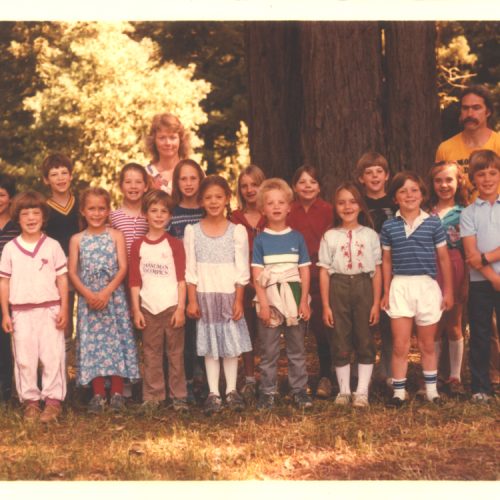
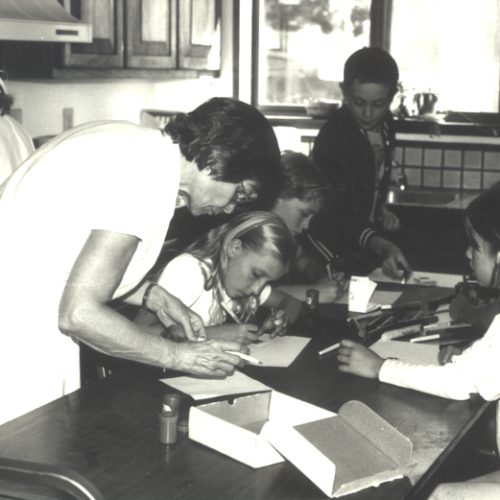
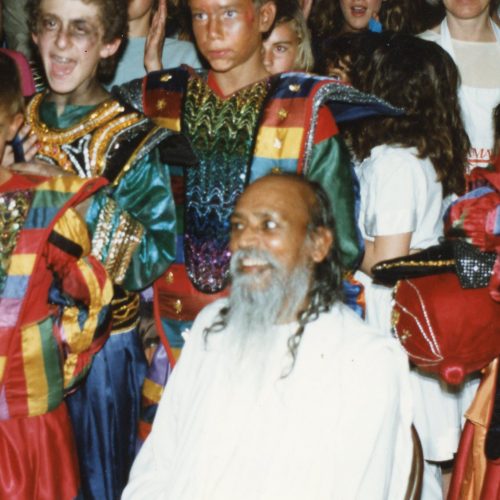
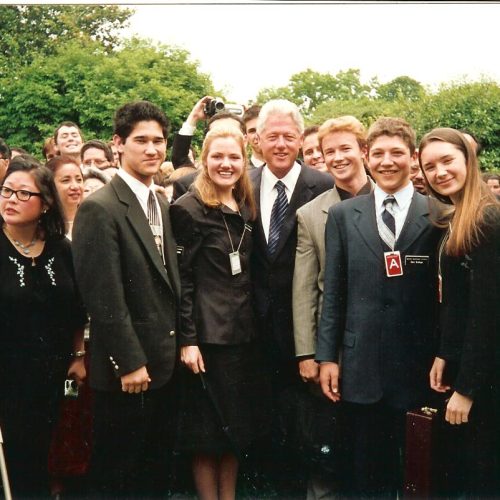
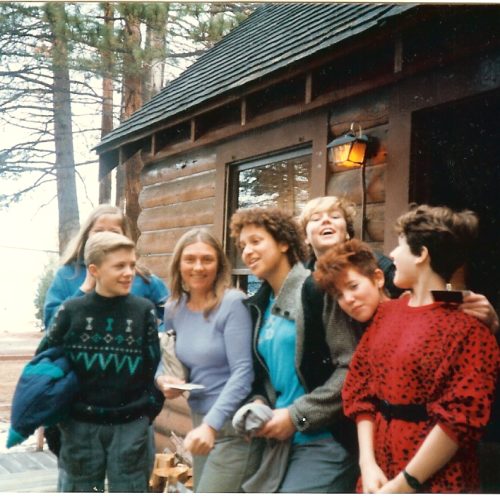
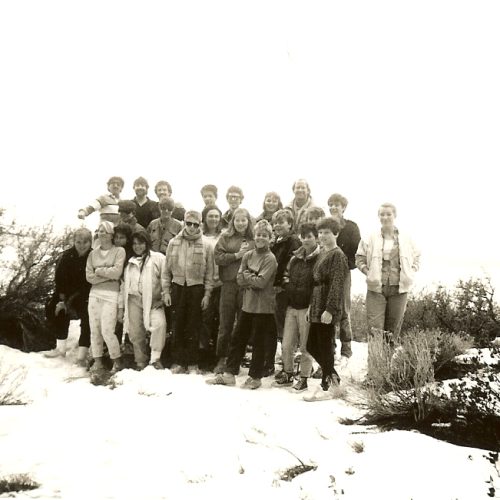
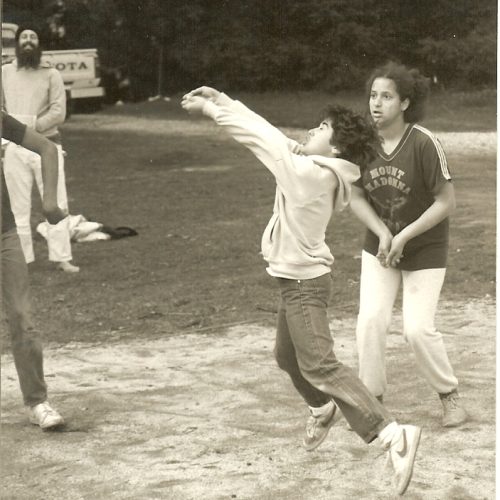
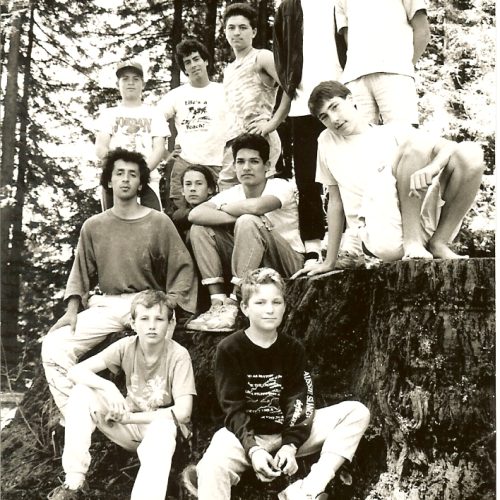
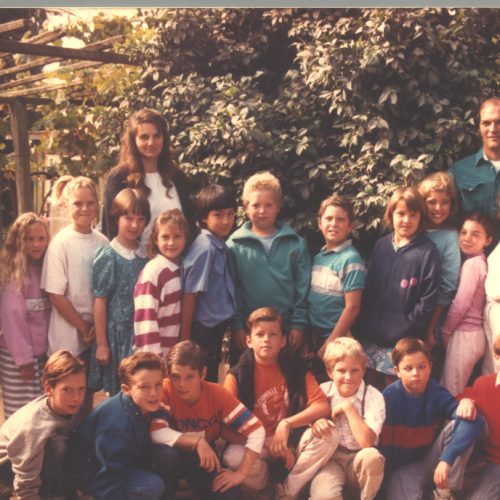
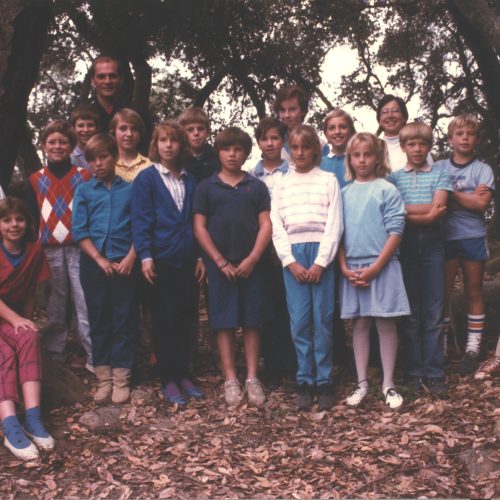
Throughout MMS’ first decade we worked to apply our philosophy to our practical reality. We were committed to enacting an educational vision that could be sustained. The mission and programs that emerged from our founding continue in some form into today’s fourth decade.
When we applied the tenet that developing concentration is the key to all learning and increases intelligence we became dedicated to academic excellence for all children. We developed practices and curriculum to inspire and support intellectual enquiry and development.
When we applied the tenet that removing fear and emotional blocks releases hidden talents we became dedicated to creative self-expression. We created opportunities for students to face their fear, explore and process their emotions, and take risks within a safe and supportive context.
When we applied the tenet that learning to live virtuously creates the possibility of happiness we became dedicated to positive character development. We established explicit and implicit opportunities to practice self-development.
When we applied the tenet that communicating honestly in a spirit of compromise solves problems we became dedicated to establishing multiple venues for dialogue and collaboration.
When we applied the tenet that cultivating positive relationships builds resilience in individuals and mutual support in community we became dedicated to developing meaningful personal connections throughout all levels of MMS.
When we applied the tenet that respecting and supporting nature is a human duty we became dedicated to sustaining the environment, our land and its variety of habitats.
When we applied the tenet that exploring the role of Spirit within human life and experience is worthwhile we became dedicated to including that examination within our educational context.
Our founding is reflected in our fourth decade, and is recognized, and appreciated. The preamble to CAIS-WASC 2016 Report concludes:
On Mount Madonna, the groves of sequoia trees stand tall—much like your students. The trees are gathered closely together in groups of seven, eleven, fifteen or more, and their branches overlap and connect. These majestic trees sparkle with life and are grounded to this sacred earth. So too are your students, as they stand confidently, grounded in a most extraordinary soil of learning and peace, in a place filled with wonderful people. All of you here are “the magic of Mount Madonna School” and we are confident that this school and your children will live, grow and thrive for generations to come.
Sarada Diffenbaugh
President, MMS Board
2016
